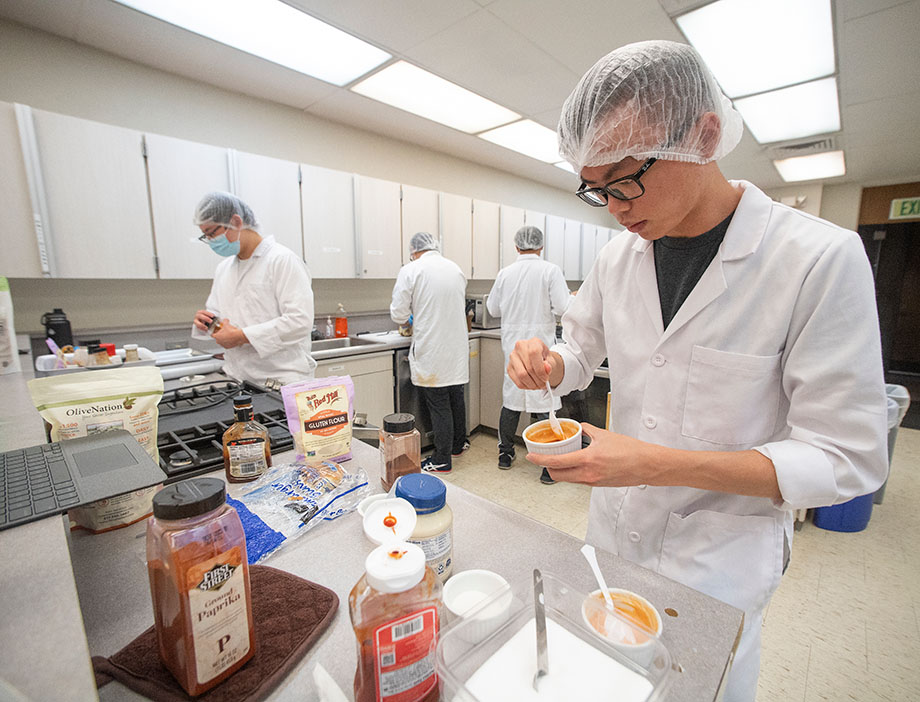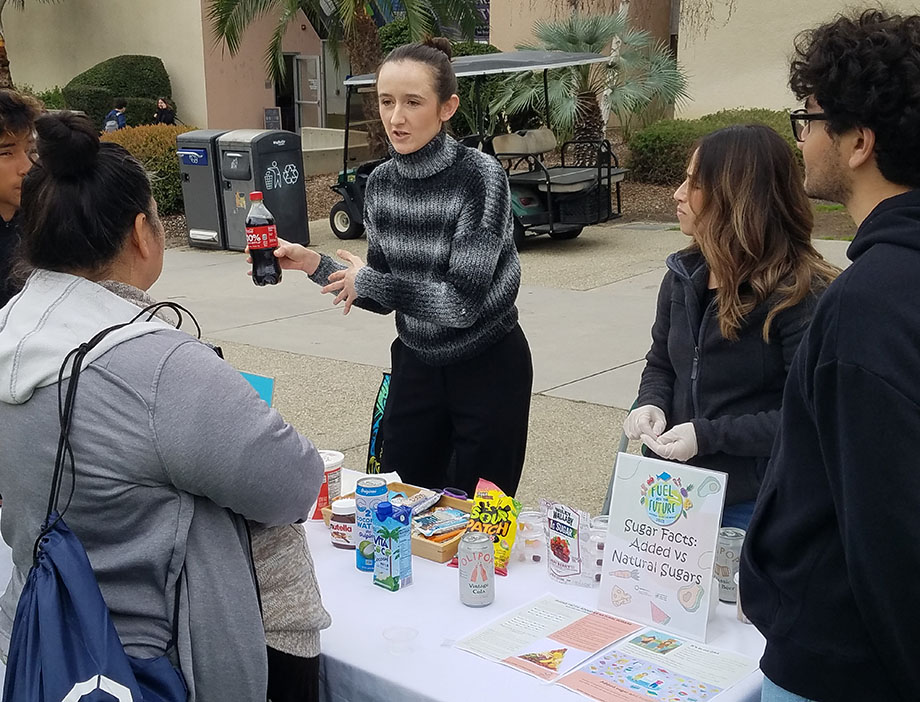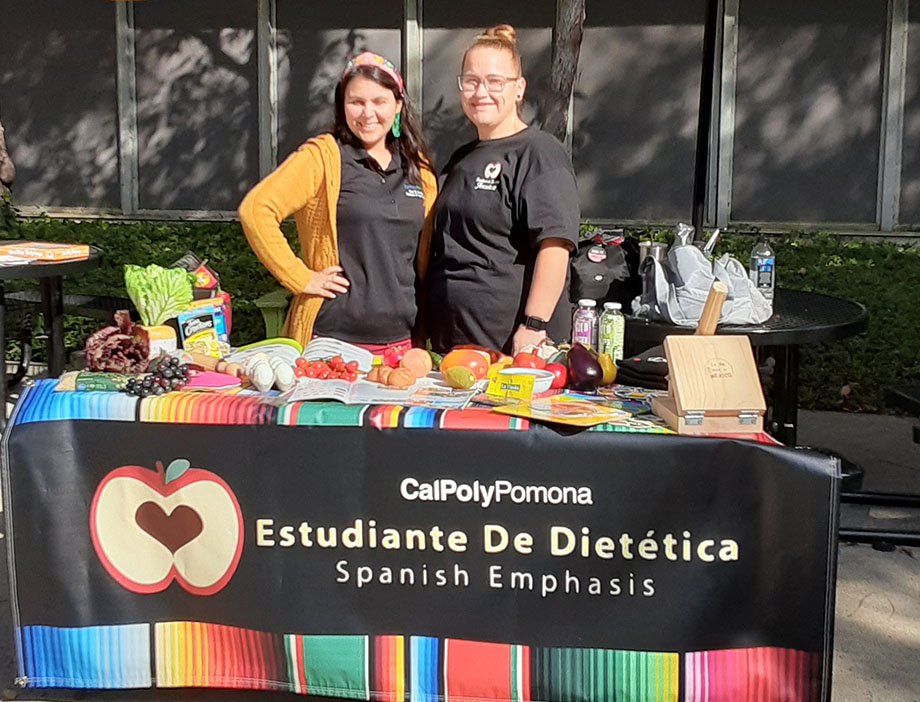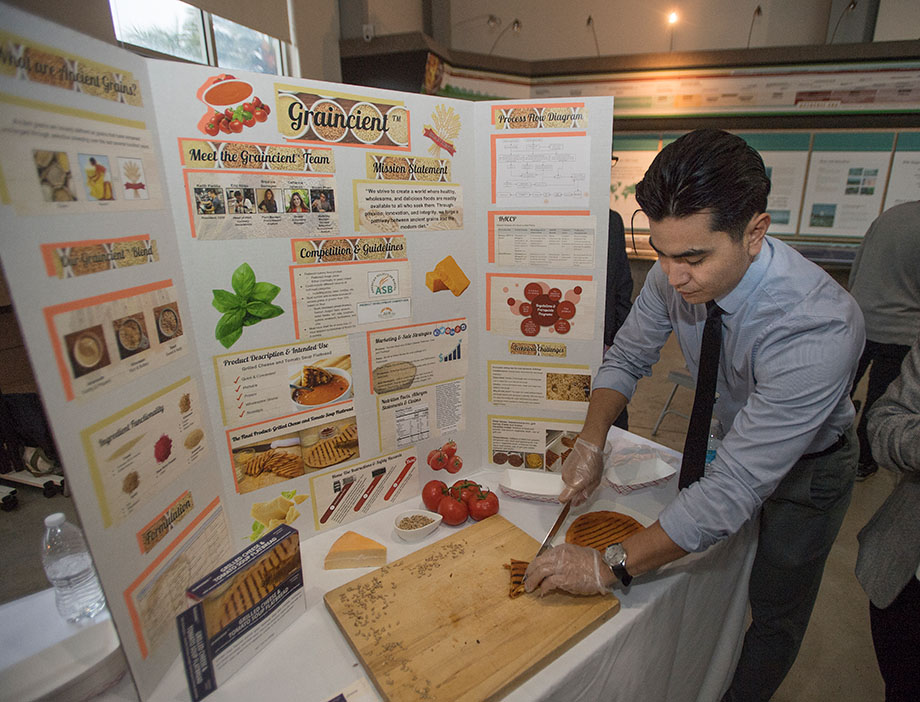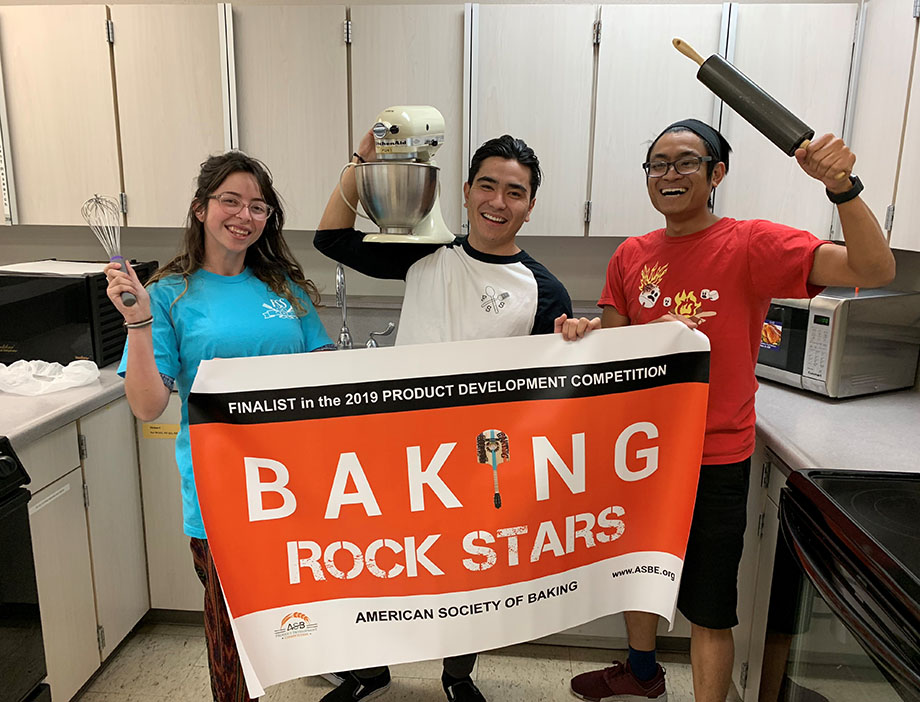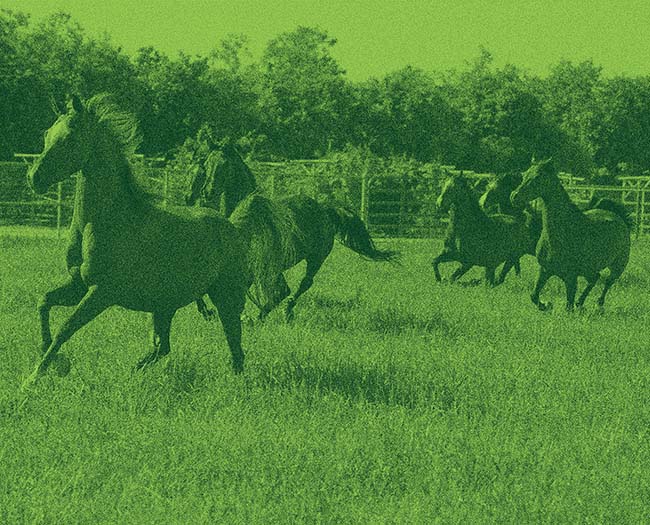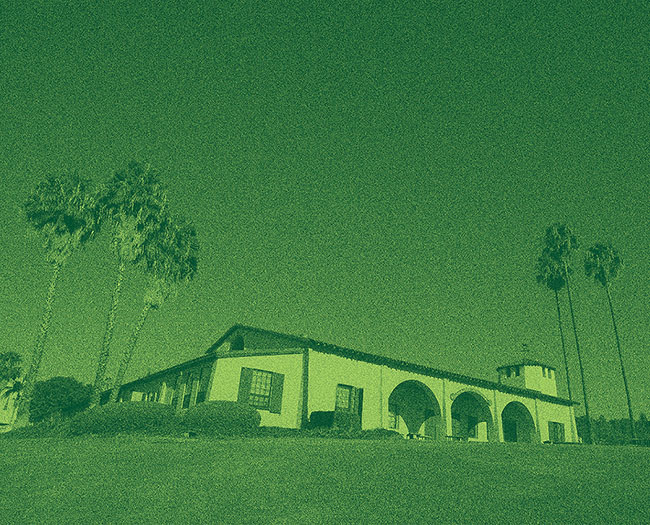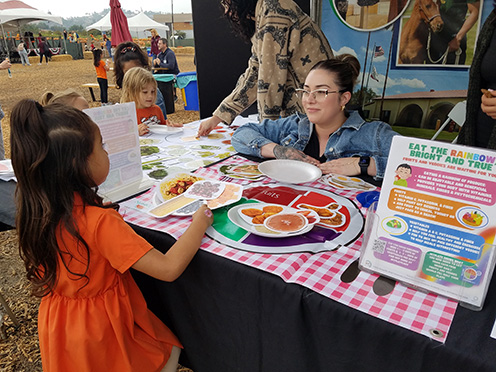
Department of Nutrition & Food Science
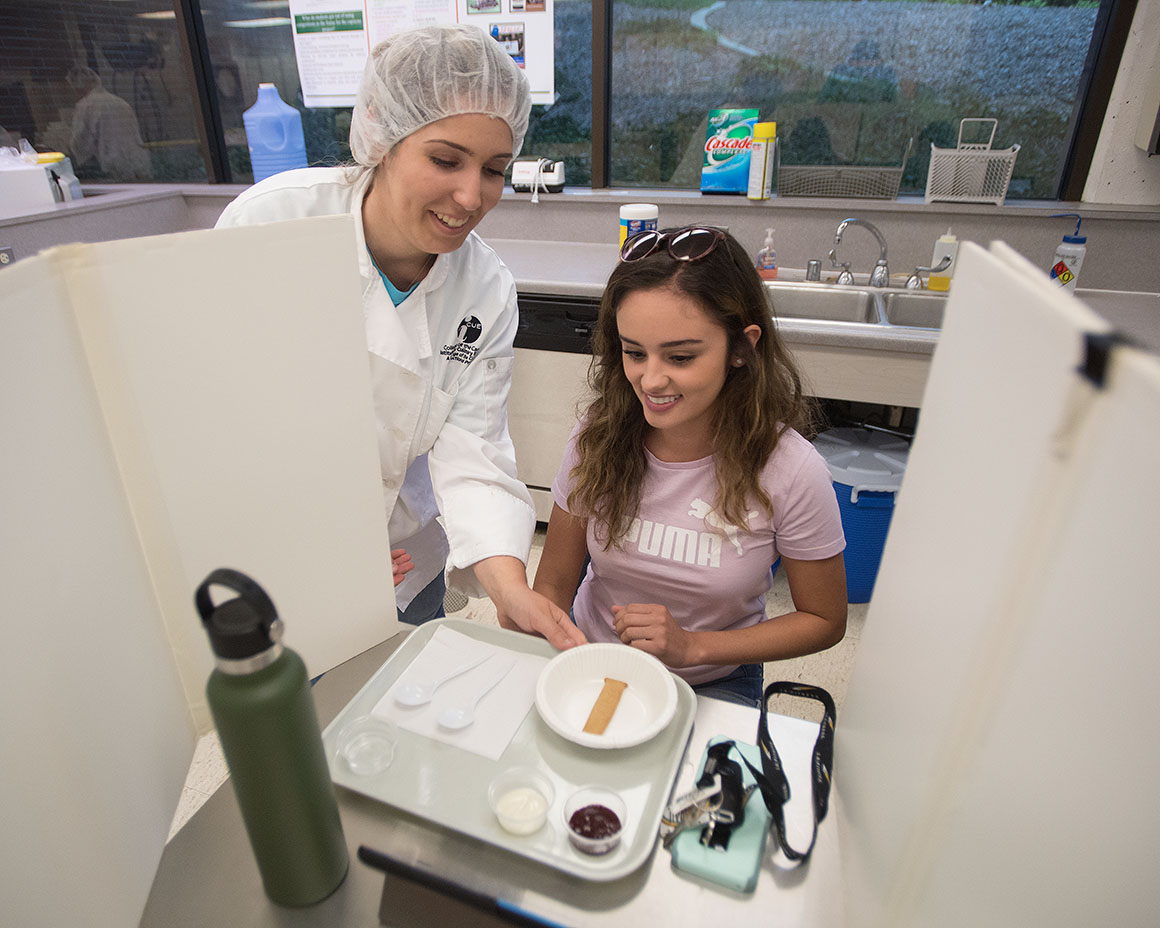
Become by Learning
Learn about the science behind nutrition and food. Help others live healthier lives. Create better food products. The Department of Nutrition & Food Science prepares students to work in the food processing and health care industries.
#1
Polytechnic University for Diversity & Economic Mobility
The Wall Street Journal, 2025; CollegeNET, 2024; Diverse: Issues in Higher Education, 2024
#21
Best Colleges in America
Wall Street Journal, 2025
Our Programs
The Polytechnic Experience

Alumni Success Stories
"The nutrition program at Cal Poly Pomona allowed me to study nutrition while pursuing a career in the medical field. I had incredible professors who mentored me throughout my journey."Jacquelyn Valenzuela-Moss ('21, nutrition) Clinical Research Coordinator, Children's Hospital Los Angeles
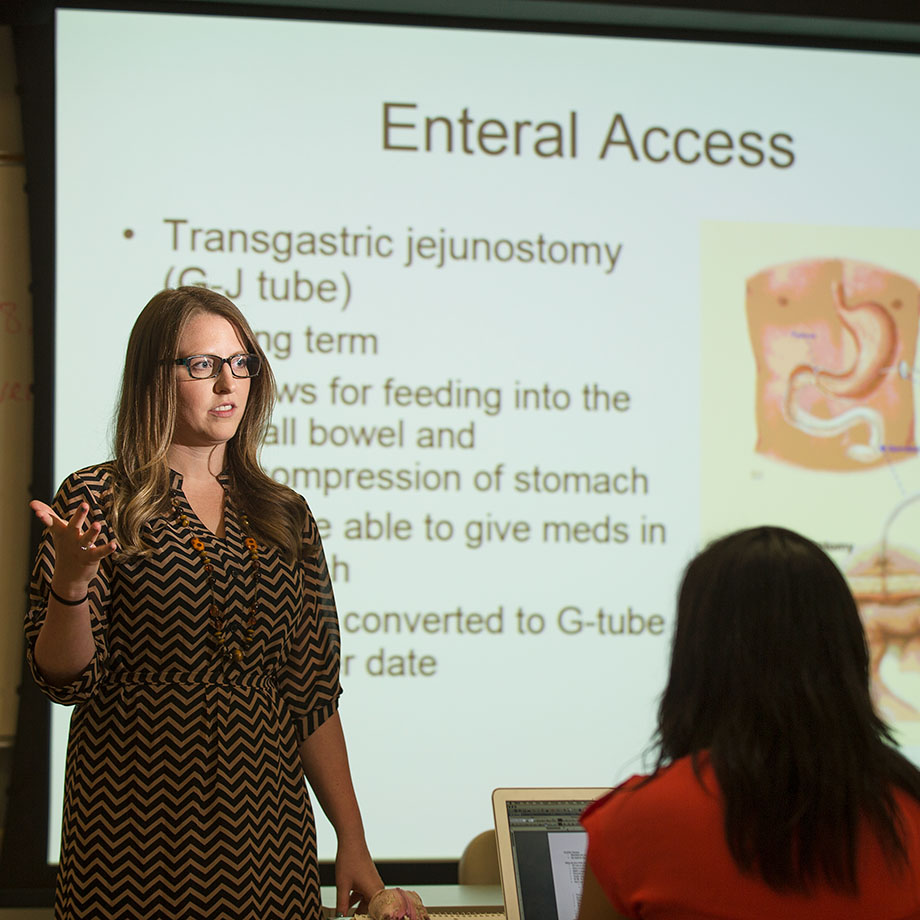
Program Recognitions
Accredited & Approved
Our Didactic Program in Dietetics and Dietetic Internship Program are accredited by the Accreditation Council for Education in Nutrition and Dietetics. Our food science and technology program is the only one in Southern California approved by the Institute of Food Technologists and the Research Chefs Association.
